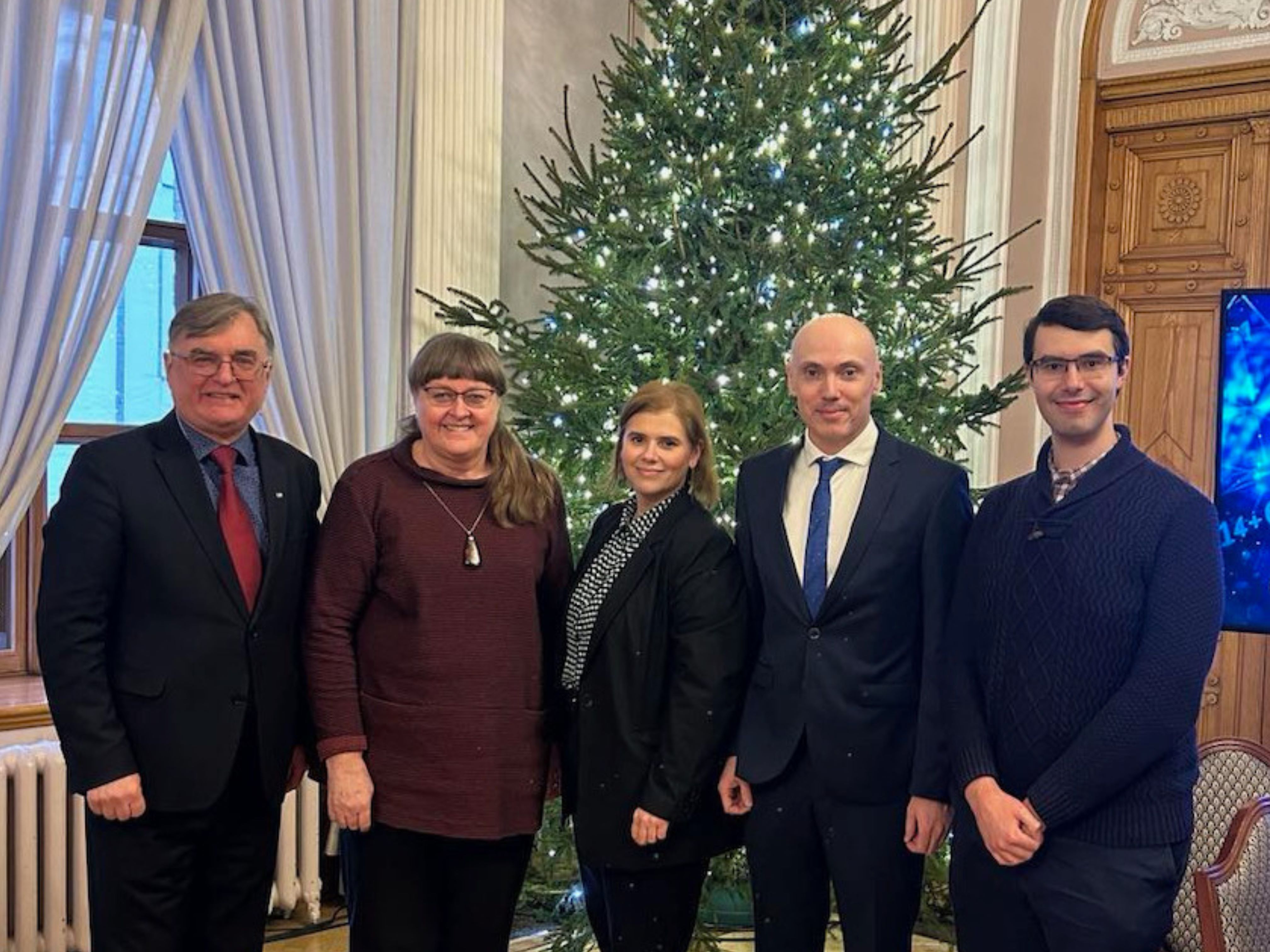The Association of Spanish Scientists in the Baltic Countries (ACEBaltic) was established to strengthen links between scientists from Spain, Estonia, Latvia, and Lithuania. Dr. Carlos Viscasillas Vazquez, a researcher at the Institute of Theoretical Physics and Astronomy, Faculty of Physics, Vilnius University, has become a member of ACEBaltic's board.

In the photo, a delegation from Lithuania: Gintaras Valinčius, Chair of the Research Council of Lithuania; Professor Gražina Tautvaišienė from the Faculty of Physics at Vilnius University; Associate Professor Isabel Palomo Dominguez from Mykolas Romeris University; Carlos Viscasillas Vázquez, a researcher at the Faculty of Physics at Vilnius University; and Adrián Casado Turrión, a postdoctoral fellow at the Center for Physical Sciences and Technology
"Researchers from Spain working in the Baltics have united. The ACEBaltic presentation took place in Tallinn at the Estonian Academy of Sciences. Representatives of all the Baltic Science Councils, Ambassadors of the Kingdom of Spain, representatives of the Spanish Government, and other guests were also present. The event included a discussion on the involvement of foreign researchers in the Baltic scientific ecosystem, the opportunities for international mobility of young researchers, and the gender balance in the natural sciences," said Dr. C. Viscasillas Vazquez.
An exhibition showcasing the achievements of women astronomers was opened during the event. A similar exhibition was presented last year at Vilnius University by Dr Sara García Alonso, a Spanish astronaut and researcher in molecular cancer biology. This year, Gražina Tautvaišienė, Professor at the Faculty of Physics of Vilnius University and Vice President of the International Astronomical Union, gave congratulatory remarks at the exhibition's opening.
ACEBaltic has an ambitious agenda for the coming year, including meetings, exhibitions, courses, and other events featuring prominent Spanish scientists. Notable highlights include a forum aimed at promoting scientific collaboration between countries and a celebration of the International Day of Women and Girls in Science. Currently, 22 Spanish researchers are contributing to Estonia's scientific community, with 9 based in Lithuania and 4 in Latvia. The official launch of ACEBaltic took place on December 14.
Promoting the internationalisation of science remains a key priority for the Baltic region. At Vilnius University’s Faculty of Physics, the most internationally diverse scientific group is led by Professor Gražina Tautvaišienė, exemplifying this collaborative effort. The group includes researchers from five other countries: two from Ukraine, two from India, and one each from Austria, Spain, and Croatia. The collaboration with almost 1000 researchers from countries all around the world is carried out in international projects such as Gaia-ESO Spectroscopic Survey, Europlanet 2024 Research Infrastructure, 4MOST, HRMOS, WEAVE, and others, which are also open to students of the Faculty of Physics.
